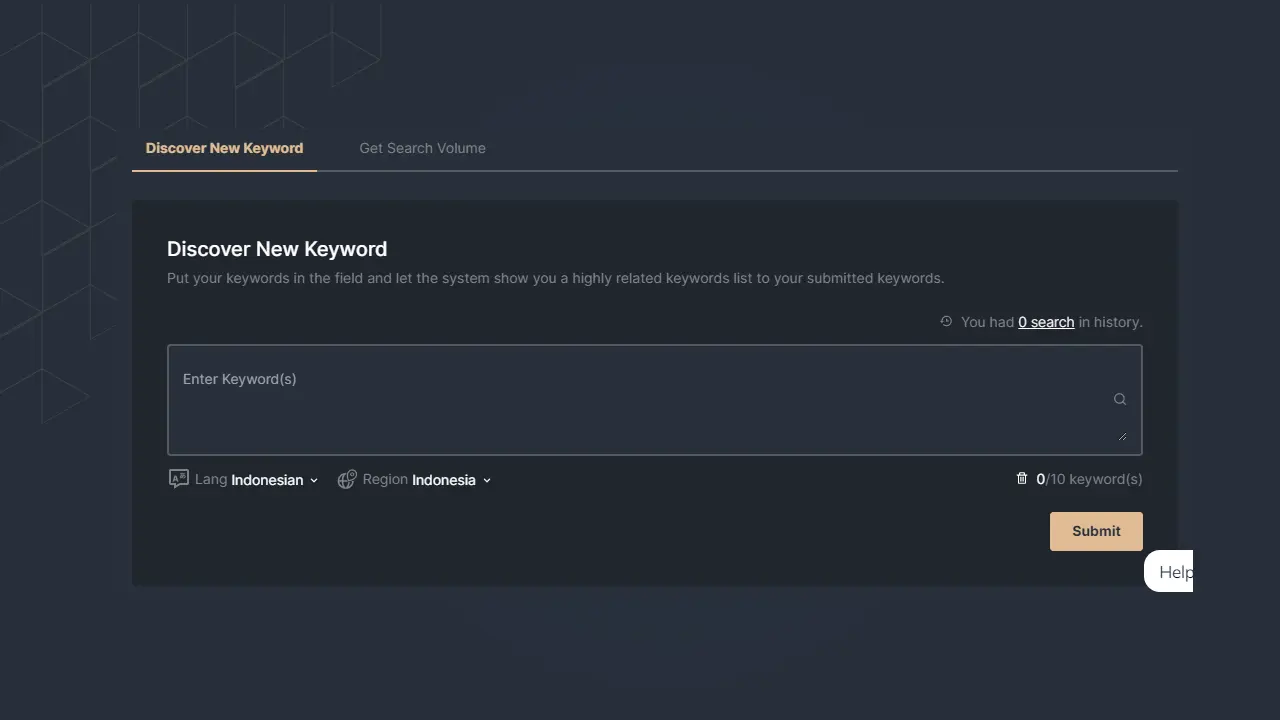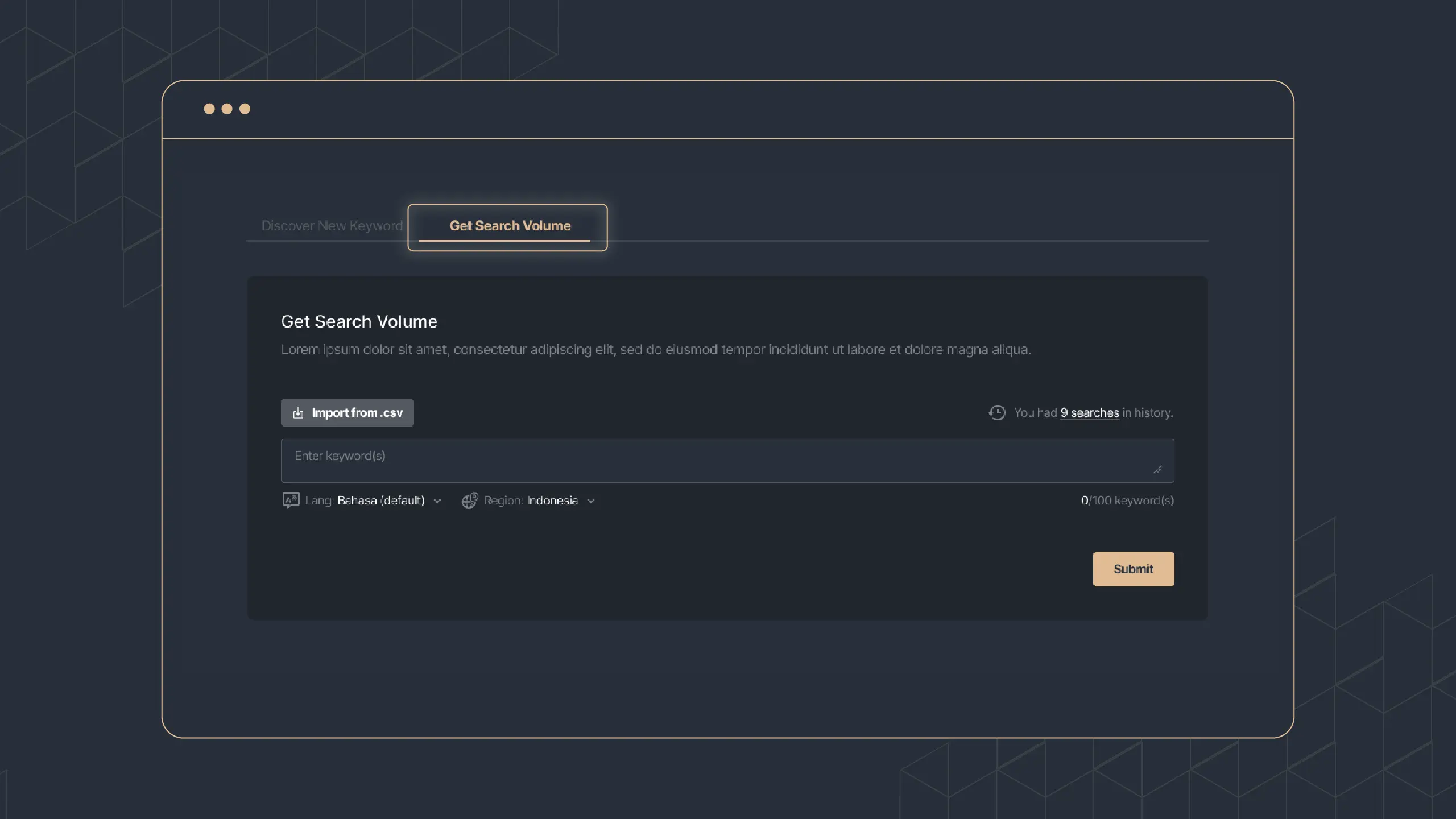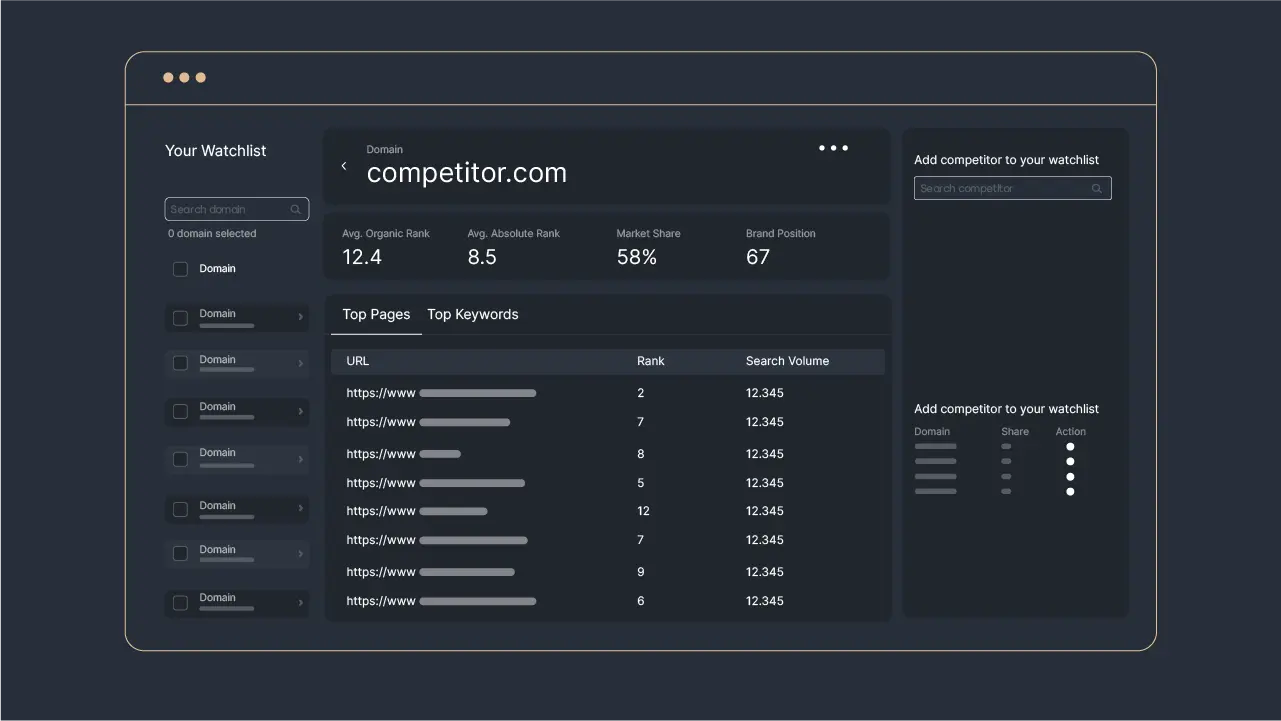Keyword Search Volume: A Guide to Targeting High-Volume Ones
Understanding keyword search volume is crucial for developing a successful strategy. It provides insights into the popularity and demand for specific keywords, allowing businesses to optimize their website content accordingly.
This article aims to equip readers with a thorough understanding of keyword search volume's importance in SEO and guide them on how to target high-volume keywords strategically. By following the techniques and best practices outlined in this article, businesses can enhance their SEO strategy.
Definition of Keyword Search Volume
Keyword search volume refers to the number of times a specific keyword or keyword phrase is searched for within a given period. It quantifies the popularity and demand for a particular keyword, providing insights into the potential reach and visibility it can offer to businesses.
Search volume is typically measured monthly or annually and is an essential metric in keyword research.
Significance of Search Volume in Keyword Research
Keyword search volume holds significant importance in keyword research for several reasons.
- Identify keyword potential: By analyzing search volume, businesses can identify keywords that are popular and frequently used by their target audience. High search volume indicates a large pool of potential visitors and customers.
- Discover relevant keywords: Search volume data assists businesses in uncovering relevant keywords related to their industry, products, or services. It helps in exploring variations, synonyms, and related terms that users frequently search for, expanding the keyword list.
- Prioritize keyword selection: Search volume helps businesses prioritize their keyword targeting efforts. By focusing on keywords with higher search volumes, businesses can allocate their resources and optimize their content for terms that have a higher potential for attracting organic traffic.
Benefits of Targeting High-Volume Keywords
You must think that a higher search volume means higher traffic. That's logically not wrong. Here are other reasons why targeting high search volume keywords beneficial for a website.
1. Increased Visibility and Exposure
Targeting high-volume keywords offers businesses the opportunity to increase their visibility and exposure in search engine results. As these keywords are frequently searched for, ranking well for them can lead to higher visibility among a larger audience.
Increased visibility translates into more opportunities for users to discover and visit your website, boosting brand awareness and attracting potential customers.
2. Attracting Larger Organic Traffic Volumes
High-volume keywords have the potential to drive larger volumes of organic traffic to your website.
When you optimize your content and website around these keywords, you increase the chances of appearing prominently in search results and attracting clicks from users actively searching for related information or solutions.
By targeting keywords with high search volumes, you can tap into a larger pool of potential visitors and drive substantial organic traffic to your website.
3. Capturing A Broader Market Share
Targeting high-volume keywords allows businesses to capture a broader market share within their industry or niche. As these keywords are indicative of widespread user interest, ranking well for them positions your business as a prominent player and increases your market visibility.
By capturing a larger market share, you can outperform competitors, generate more leads, and ultimately increase your chances of conversion and business growth.
Evaluating Keyword Competition for High-Volume Keywords
Now you know why high search volume keywords must be prioritized. Then, is there anything to consider when you want to target these keywords? Here is how to evaluate them.
1. Balancing Search Volume and Competition
While targeting high-volume keywords is advantageous, it is essential to strike a balance between search volume and competition. Highly competitive keywords with high search volumes may require more significant resources and time to rank well.
It is crucial to assess your website's authority and capabilities to compete effectively for these keywords. Alternatively, exploring keywords with slightly lower search volumes but manageable competition can still yield significant results.
 |
|---|
| Picture 1: Keyword Research Tool to get search volume and competition data |
2. Utilizing Keyword Difficulty Scores and Competition Analysis Tools
To evaluate the competition for high-volume keywords, businesses can leverage keyword difficulty scores and competition analysis tools. Use a keyword search volume checker to provide insights into the level of competition for a specific keyword, helping businesses gauge the effort required to rank well.
 |
|---|
| Picture 2: Get the Search Volume feature |
Competition analysis tools offer valuable data on competitor strategies, their ranking positions, and their backlink profiles. By analyzing this data, businesses can gain competitive intelligence and refine their SEO strategy accordingly.
Here is Domain Watchlist feature from Sequence that is able to do so.
 |
|---|
| Picture 3: Domain Watchlist feature |
3. Identifying Long-Tail Variations of High-Volume Keywords
In addition to targeting high-volume keywords directly, businesses can identify long-tail variations or specific keyword phrases related to high-volume keywords. Long-tail keywords are typically longer and more specific, with lower competition.
By incorporating long-tail variations into your content strategy, you can tap into targeted niches and attract users with more specific intent, increasing the chances of conversion.
Conclusion
In conclusion, targeting high-volume keywords in your SEO strategy can yield significant benefits for your business. By focusing on keywords with substantial search volume, you can increase your visibility to overall SEO performance.
However, it is crucial to evaluate keyword competition and strike a balance between search volume and competitiveness. So, take the time to research, analyze, and implement a targeted high-volume keyword strategy to maximize the impact of your SEO efforts.